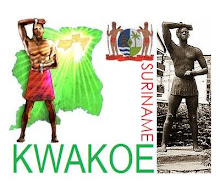

DECLARATION OF PARAMARIBO ON THE FUTURE OF YOUTH IN THE CARIBBEAN COMMUNITY
We, the Heads of Government of the Caribbean Community (CARICOM), meeting at the Torarica Hotel, Paramaribo, Suriname on 30 January 2010 on the occasion of a Special Regional Summit on Youth Development:
Conscious that regional integration holds the key to the optimal development of the small developing countries of the Community and the regional population, the majority of which is under the age of 30;
Affirming our belief that the unique perspective, creativity, energy and other assets which young people possess are essential elements of societal change, technological innovation and development, making them invaluable assets and partners in development and not problems to be solved;
Welcoming the United Nations proclamation of 2010 as the International Year of Youth which gives heightened importance to this first Special Summit of CARICOM Heads of Government on Youth Development and the report of the CARICOM Commission on Youth Development;
Inspired by the historic contributions of Caribbean youth to social, technological, political and even economic change within this region and beyond;
Acknowledging the corrosive impact of poverty, social inequalities and marginalisation on youth health and well being, the impact of globalisation on traditional values and attitudes and the dual impact of global streams of information and culture on youth dreams, aspirations, risk and vulnerability;
Impelled by a determination to strengthen the Regional Strategy for Youth Development to promote, in particular, citizenship and Caribbean identity; youth health, protection and well being; new and younger leadership, governance and participation and social and economic empowerment, productivity and competitiveness;
Fully convinced of the benefits to be derived from institutionally strengthening and raising the profile of Departments responsible for Youth Affairs, National Youth Councils, the CARICOM Youth Ambassador Programme and other youth governance structures;
Recognising the historical contributions of the Commonwealth Youth Programme (CYP), United Nations Population Fund (UNFPA), United Nations Development Programme (UNDP), United Nations Children’s Fund (UNICEF) and other development partners towards the development and empowerment of Caribbean youth, the establishment of youth work as a professional occupation and the strengthening of Youth Organisations/NGOs and Departments responsible for Youth Affairs;
Endorsing the main recommendations of the CARICOM Commission on Youth Development with regard to the CSME, youth governance, human resource development, sports and culture;
Declare –
• Our intention to explicitly recognise and clearly articulate the role of youth in Caribbean development in the amended Revised Treaty of Chaguaramas; and to ensure that this role is enshrined in national and regional development strategies, together with provisions for youth mainstreaming, youth-adult partnership and youth participation across all sectors;
• That we welcome the United Nations Proclamation of 2010 as the International Year of Youth which enhances the symbolic relevance of this first Special Summit of CARICOM Heads of Government on Youth Development and the timeliness of the report of the CARICOM Commission on Youth Development;
• That we support actions aimed at establishing a clearly defined research and policy agenda as the framework for empowering and developing youth in the region, informed by the several research papers undertaken for the CCYD as part of its investigations; complemented by a central mechanism for storing and analysing research and best practice data; and supported by development partners and donors in the Region;
• Our commitment to initiatives to create a mass movement of young people in support of regional integration and to shape a sense of common identity and destiny through mechanisms and strategies such as ICT, youth-led advocacy and peer sensitisation networks, youth exchanges, sports and culture;
• Our full support for auditing Departments responsible for Youth Affairs and for developing, by mid-2011, comprehensive restructuring plans informed by regional guidelines which include coordination of youth development initiatives nationally; mainstreaming youth; strategic planning and evidence-based/research-driven programming; forming strategic alliances and implementation partnerships with youth organisations/NGOs/CBOs and development agencies; coordinating the implementation of the Regional Strategy for Youth Development; and translating regional policy into national action;
• That we strongly endorse the recommendation to use the Commission on Youth Development’s research findings to strengthen the Regional Strategy for Youth Development and to develop complementary CARICOM Youth Development Goals, targets and indicators as desirable outcomes for youth well-being and empowerment;
• Our commitment to recognise and provide incentives for outstanding youth talent, excellence and volunteerism though the establishment of a regional youth award at the level of the Order of the Caribbean Community and a multi-agency Regional Youth Awards and Incentives Programme;
• That we will support policies and programmes to engage the creative intellect and energy of a diverse youth population in facing the challenges of globalisation and the CSME, and to develop national and regional youth governance networks with clearly articulated roles for National Youth Councils, CARICOM youth Ambassadors and other national and regional structures.
• That the inter-relatedness of education, health, labour and other social sector areas require the development of youth mainstreaming, the development of collaborative multi-sectoral strategies and the coordination and harmonisation of the efforts of the public and private sector, civil society and development partners;
• Our commitment to take account of the gender dimension in all of our programmes aimed at youth development and empowerment and to embrace the role of the media as a responsible partner in all our efforts to empower and develop young people;
• Our endorsement of proposals to develop, in consultation with regional and international agencies and donors, the modalities for a sustainable regional mechanism for financing the operationalisation and implementation of the commitments arising out of this Special Summit on Youth Development; and for strengthening the capacity of the CARICOM Youth Desk to provide oversight of the implementation and monitoring of the Regional Strategy for Youth Development and of this Declaration;
• Our strengthened resolve to scale up initiatives to commemorate International Youth Day on 12 August 2010 as well as Caribbean Youth Day on 30 September 2010.
Paramaribo, Suriname30 January 2010
CONTACT: piu@caricom.org





